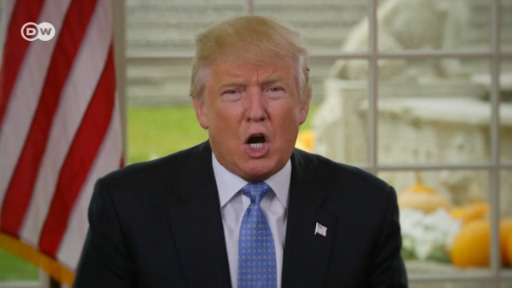'Putting America first,' Trump ditches TPP deal
"I've asked my transition team to develop a list of executive actions we can take on day one to restore our laws and bring back our jobs," the US president-elect said in a video message outlining priorities for his first 100 days.
"On trade, I am going to issue our notification of intent to withdraw from the Trans-Pacific Partnership, a potential disaster for our country," he said.
"Instead, we will negotiate fair, bilateral trade deals that bring jobs and industry back onto American shores."
TPP was a major focus during Barack Obama's presidency. Obama's signature trade initiative was designed to strengthen economic ties between the US and Asian countries and was seen as a blueprint for other trade deals to follow, such as TTIP. However, many voters believed that such international trade deals are largely responsible for jobs in the US being outsourced abroad.
Japan reacts
Japan's Prime Minister Shinzo Abe reacted to Trump's comments, saying that the TPP would be meaningless without US participation.
Abe, who attended a gathering of TPP leaders in Lima on the weekend, said there was no discussion at the meeting that other members should try to put the TPP into effect without the United States. He also said the pact could not be renegotiated.
"This would disturb the fundamental balance of benefits."

Japan is also worried that Trump might follow up his campaign rhetoric and demand that Tokyo pay more for the 50,000 American troops stationed in Japan under a security treaty. At the present moment, Japan pays only about half of the non-personnel costs of stationing the US troops.
Japan's pacifist constitution, drafted after World War II, forbids the use of force in settling international disputes. Though this directive has been interpreted loosely, with increasingly Japan training its own military for peacekeeping missions, the country relies on the US for protection against aggression.
The beginnings of the 'Trump Doctrine'
Trump's message addressed other areas of policy as well, including another key campaign platform issue, immigration.
"On immigration, I will direct the Department of Labor to investigate all abuses of visa programs that undercut the American worker," he said. Trump also outlined that his initial focus on national security would be to "develop a comprehensive plan to protect America's vital infrastructure from cyber-attacks, and all other form of attacks" with the help of the Department of Defense and the Chairman of the Joint Chiefs of Staff.
He also spoke of the introduction of a lifetime ban on executive government officials "lobbying on behalf of a foreign government" as part of his planned ethics reform.
Trump also rejected environmental concerns for the energy sector, saying he would cancel "job-killing restrictions," including regulations on shale energy, to create jobs. He also state that as a general rule, he would eliminate two old pieces of government regulation for every new one introduced.
